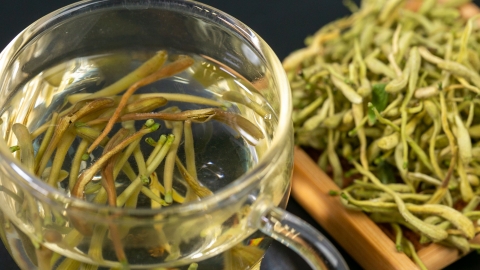What diseases are treated with honeysuckle, skullcap, and forsythia?
Under normal circumstances, Honeysuckle (Lonicera japonica), Scutellaria baicalensis, and Forsythia are commonly used together and are generally effective in treating wind-heat感冒, sore throat, lung heat with cough, abscesses and swellings, and damp-heat jaundice. Specific applications are as follows:

1. Wind-heat感冒: All three herbs have heat-clearing and detoxifying properties, which can alleviate symptoms caused by wind-heat感冒 such as fever, headache, cough, and thirst, helping to dispel wind-heat pathogens from the body and relieve discomfort.
2. Sore throat: When used together, these herbs can clear and soothe the throat, relieving symptoms such as redness, swelling, pain, and hoarseness of the throat caused by heat toxicity, thereby reducing local inflammatory reactions.
3. Lung heat with cough: These herbs can clear heat from the lungs and improve symptoms such as frequent coughing, yellow and thick phlegm, and unsatisfactory expectoration caused by lung heat, promoting the elimination of heat toxicity from the lungs.
4. Abscesses and swellings: With strong heat-clearing and detoxifying effects, these herbs can be used to treat skin abscesses and symptoms such as redness, swelling, heat, and pain, helping to dissipate local heat toxicity and promote healing of abscesses.
5. Damp-heat jaundice: These herbs can clear heat and resolve dampness, and are effective in treating jaundice caused by damp-heat, characterized by yellowing of the skin and eyes and dark yellow urine, helping to eliminate damp-heat and alleviate symptoms.
When using these three herbs together, syndrome differentiation-based treatment is required, with dosage adjusted according to specific conditions. Use with caution in individuals with spleen and stomach deficiency-cold syndromes. If symptoms do not improve or worsen during treatment, medical advice should be sought promptly to adjust the treatment plan.






